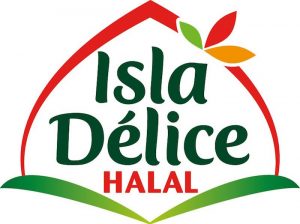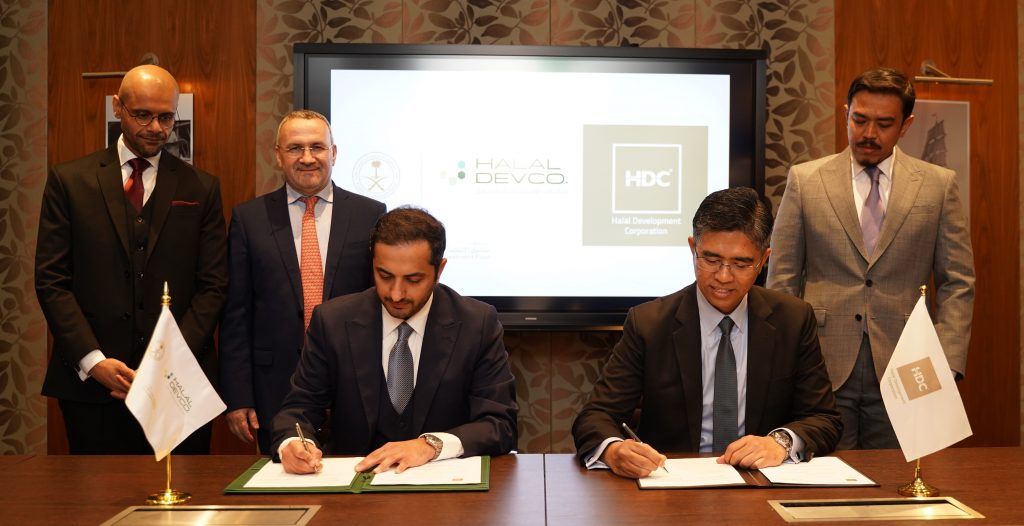By Bruce Crumley / Paris
A pack of shoppers swarm supermarket shelves, cheerfully
snapping up packages of prepared lasagna, ravioli, and paella as they
sing the products’ praises. Sounds just like a normal evening TV ad.
And it is, only this one features ethnic Arab actors in a commercial
for halal food in France. A first in its own right, that ad is already
a remarkable sight on French TV. But even more surprising is the
reaction it’s gotten — or, rather, hasn’t gotten. In a country that’s
usually quick to burst into outrage over the spread of Islam into
secular society, these halal food ads have been playing without a peep
from the public.
The ad campaign by Panzani-owned, Lyon-based food brand Zakia Halal
is the first ever mass-market promotion of halal food to France’s
estimated five million Muslims. The TV spots kicked off on Aug. 17 to
coincide with the start of the holy month of Ramadan, and have been
running on most of France’s largest television channels since. The
$430,000 campaign will be put on pause Sept. 2, then resumed as Ramadan
comes to an end later this month and the feast of Eid el-Fitr
approaches. Thus far, the spots have gotten a mostly supportive
reaction from Muslim shoppers and the French media, with the daily Le Parisien trumpeting “Halal Takes A Spot On TV”. (See pictures marking the end of Ramadan.)
What’s astounding is how long it took for any of France’s numerous
makers of halal food products to embrace this kind of mass marketing.
Studies done by ethnic marketing consultancy Solis Conseil in Paris
estimate that French Muslims currently purchase around $5.7 billion
worth of specialized foodstuffs and related products — a market that’s
been increasing by around 15% annually for nearly a decade. Solis has
also found that nearly 94% of all Muslims in France with North African
roots — by far the largest group of Muslims in the country — buy
exclusively halal food. A recent poll by the Ifop agency found that 70%
of Muslims in France are observing Ramadan this year — leaving little
doubt as to the thinking behind the timing of Zakia Halal’s
ground-breaking ad campaign. (Read: “Soccer Star Benched for Fasting During Ramadan.”)
“Even though people have to fast during the day, Muslims tend to eat
more — and better — when they can eat during Ramadan, which is why it
is traditionally a period of peak consumer activity,” explains Abbas
Bendali, director of Solis Conseil. “Zakia’s timing makes good sense
because people tend to be short on time during Ramadan, and will use
prepared dishes along with fresh food for meals. And when you consider
the size and value of this demographic, using mass-market methods to
promote halal products becomes logical, too.”
But it’s also potentially inflammatory, given the tendency of the
French to view overt manifestations of Islamic faith as a threat to the
nation’s tradition of secularity. After all, France is the nation that
felt obliged to protect itself against the supposed spread of Islam by
passing a 2004 law prohibiting students from wearing religious symbols
in public schools — a measure primarily aimed at Islamic headscarves.
Earlier this year, legislators demanded a legal ban on burqas,
a form of apparel that President Nicolas Sarkozy also damned as “not
welcome on French territory.” That legal prohibition was regarded as
overkill, however, when a police intelligence study estimated that less
than 370 women in the nation of 65 million people actually wear the
complete head, face, and body covering.
Even so, the French media worked itself up into a lather in July
when one woman demanded the right to swim in a burqini — a one-piece
that resembles a wet suit — in a public pool that denied her entrance.
Given that, it’s little wonder that the approval — or disinterest —
that the French public has shown the Zakia Halal ads has been a source
of contentment and relief to many French Muslims. (Read: “Halal: Buying Muslim.”)
“So much negativity has recently been attached to so-called Muslim
topics that there’s a certain satisfaction that ads for halal products
are being greeted as normal,” Bendali says. “After so many years of
being ordered to integrate into French society and culture, Muslims are
interpreting the reaction to these ads as a sign that integration may
finally be working in both directions. It appears the rest of France is
starting to regard things like halal food as part of the new mix.”
In fact, it has been for quite a while — though marketers and
distributors have tended to keep quiet about it. For most of the last
decade, France’s main supermarket chains have carried halal food to
keep up with demand from consumers. That has increased so much, that
those supermarkets have recently launched their own halal brands to
rival those of food groups — and are beginning to display them in
dedicated halal sections as they have kosher food for years.
Still, don’t expect to see the shelves stocked with Western
versions of traditional North African fare, like microwaveable couscous
or ready-made tagine. Those are things French Muslims still prefer to
make themselves. Instead, what they’re snapping are more exotic dishes
like lasagna, beef, bourguignon and hachis Parmentier — à la halal bien sûr.


